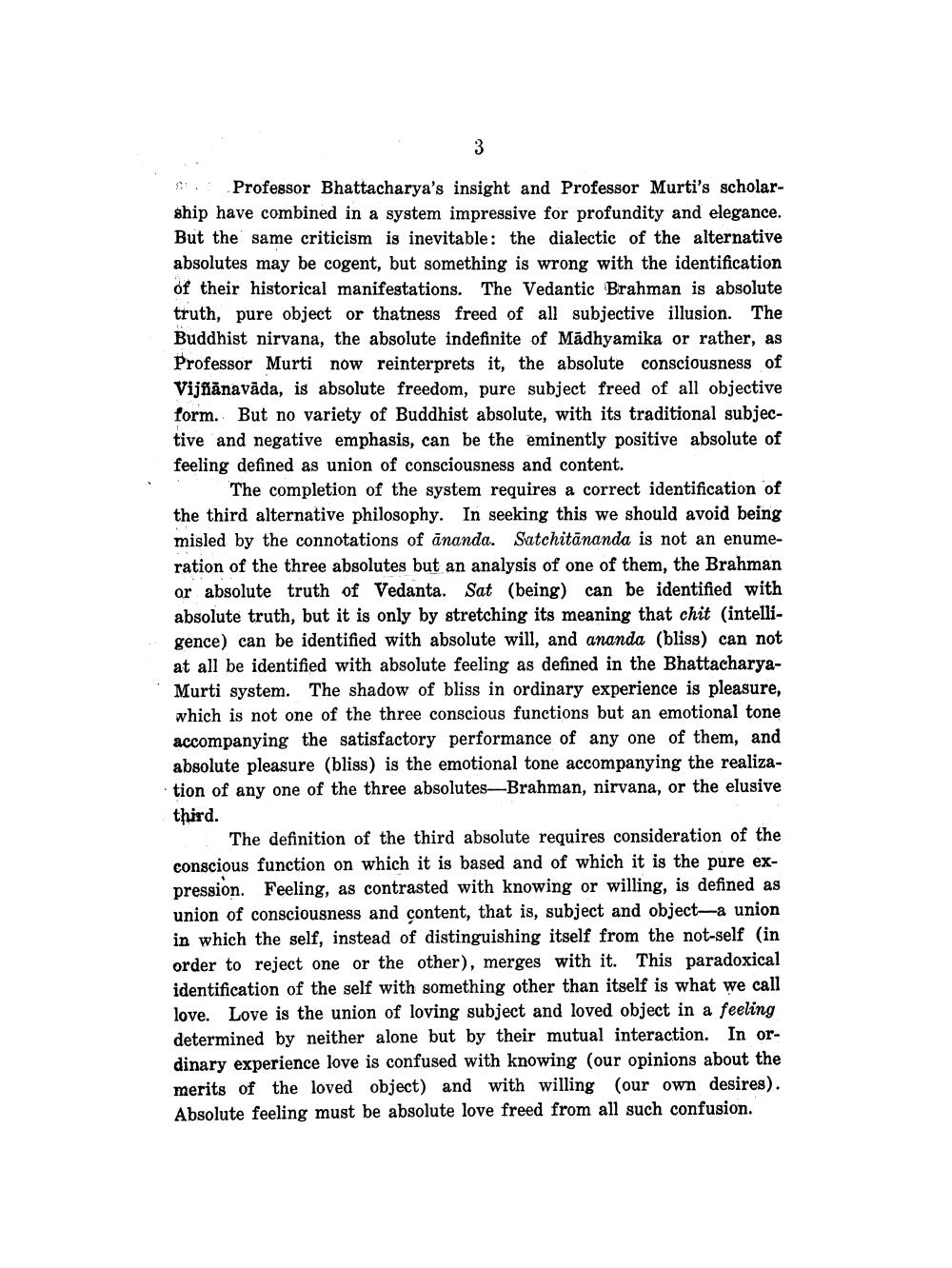Book Title: Absolute Feeling Author(s): Georg Burch Publisher: Georg Burch View full book textPage 3
________________ $:!: Professor Bhattacharya's insight and Professor Murti's scholarship have combined in a system impressive for profundity and elegance. But the same criticism is inevitable: the dialectic of the alternative absolutes may be cogent, but something is wrong with the identification of their historical manifestations. The Vedantic Brahman is absolute truth, pure object or thatness freed of all subjective illusion. The Buddhist nirvana, the absolute indefinite of Mādhyamika or rather, as Professor Murti now reinterprets it, the absolute consciousness of Vijñānavāda, is absolute freedom, pure subject freed of all objective form. But no variety of Buddhist absolute, with its traditional subjective and negative emphasis, can be the eminently positive absolute of feeling defined as union of consciousness and content. The completion of the system requires a correct identification of the third alternative philosophy. In seeking this we should avoid being misled by the connotations of ānanda. Satchitānanda is not an enumeration of the three absolutes but an analysis of one of them, the Brahman or absolute truth of Vedanta. Sat (being) can be identified with absolute truth, but it is only by stretching its meaning that chit (intelligence) can be identified with absolute will, and ananda (bliss) can not at all be identified with absolute feeling as defined in the BhattacharyaMurti system. The shadow of bliss in ordinary experience is pleasure, which is not one of the three conscious functions but an emotional tone accompanying the satisfactory performance of any one of them, and absolute pleasure (bliss) is the emotional tone accompanying the realization of any one of the three absolutes—Brahman, nirvana, or the elusive third. The definition of the third absolute requires consideration of the conscious function on which it is based and of which it is the pure expression. Feeling, as contrasted with knowing or willing, is defined as union of consciousness and content, that is, subject and object-a union in which the self, instead of distinguishing itself from the not-self (in order to reject one or the other), merges with it. This paradoxical identification of the self with something other than itself is what we call love. Love is the union of loving subject and loved object in a feeling determined by neither alone but by their mutual interaction. In ordinary experience love is confused with knowing (our opinions about the merits of the loved object) and with willing (our own desires). Absolute feeling must be absolute love freed from all such confusion.Page Navigation
1 2 3 4 5 6
